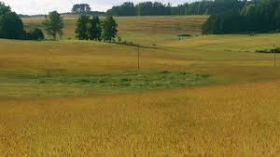Agriculture, EU – Baltic States, Lithuania, Markets and Companies, Real Estate
International Internet Magazine. Baltic States news & analytics
Saturday, 27.12.2025, 13:21
Lithuanian govt approves easing of requirements for farmland buyers
 Print version
Print version |
|---|
Agriculture Minister Bronius Markauskas says that the European Commission urges Lithuania to revise the land acquisition regulation, or face a fine of around 677,000 euros.
"It is proposed to remove the qualification requirements and to leave in place only the right of first refusal to the owners of adjacent land to purchase land up for sale," he said during the Cabinet's meeting.
Foreign Minister Linas Linkevicius expects that with the barriers having been removed, the EU's executive body will not take Lithuania to court over the infringement.
"Talks with the European Commission lasted for half a year. Basically, we can say now that these safeguards have been changed. In fact, what we are doing now would prevent the European Commission from turning to court, where we would likely suffer a defeat," he said during the meeting.
The amendments to the Law on Acquisition of Agricultural Land are yet to be approved by the Seimas (parliament).
The current law, in effect since May 2014, limits the amount of land that a farmer and related persons can buy to 500 hectares. A buyer who wants to acquire more than 10 hectares of land must have at least three years' experience in farming or a related profession. The new owner must use the land for agricultural purposes for at least five years before he or she can sell it. Also, permission from the National Land Service needs to be obtained.
A transitional period during which Lithuania was allowed to keep in place its ban on the sale of land to foreigners ended on May 1, 2014. The law was passed amid fears that foreigners would buy up land in the country and would thus ruin its agriculture.








 «The Baltic Course» Is Sold and Stays in Business!
«The Baltic Course» Is Sold and Stays in Business!

